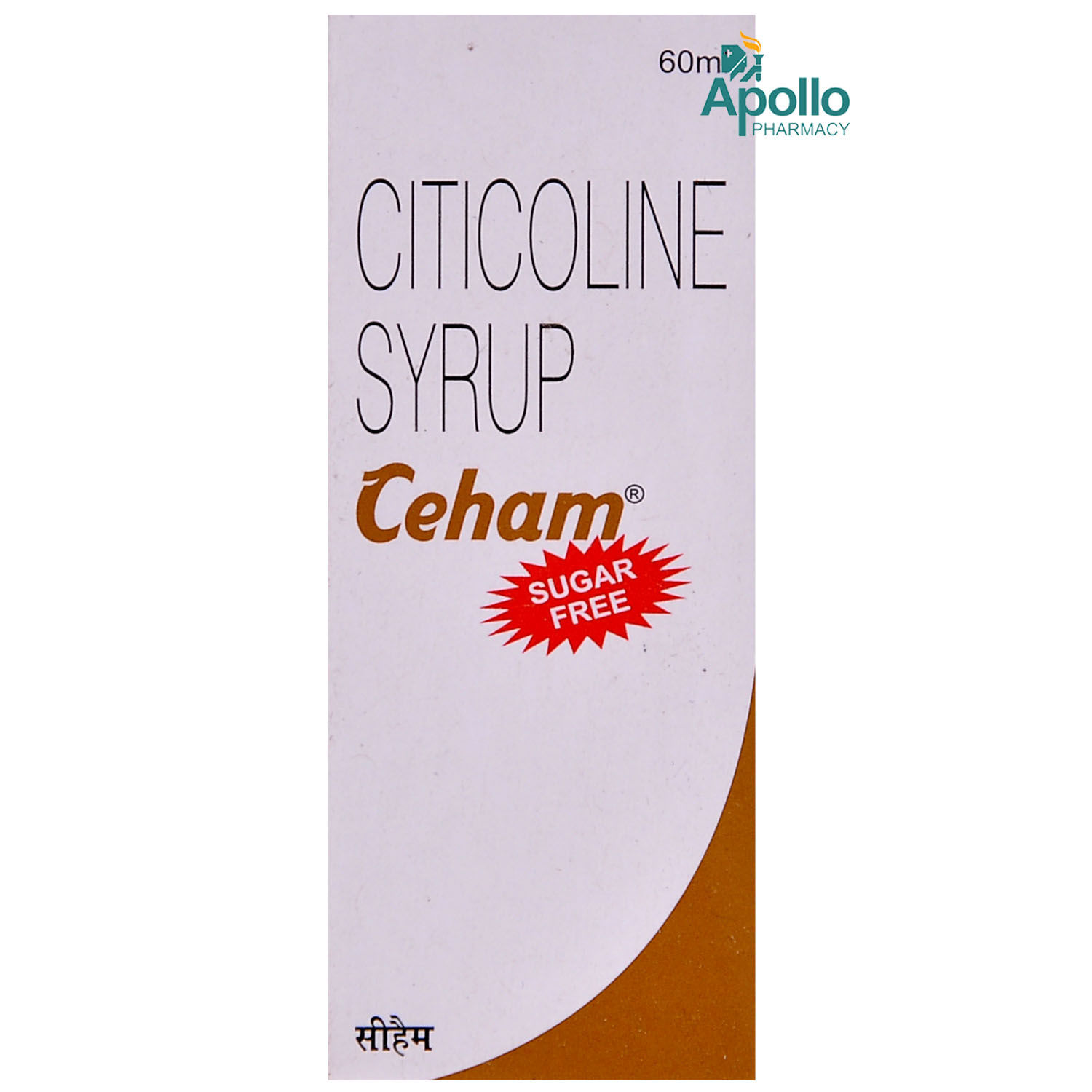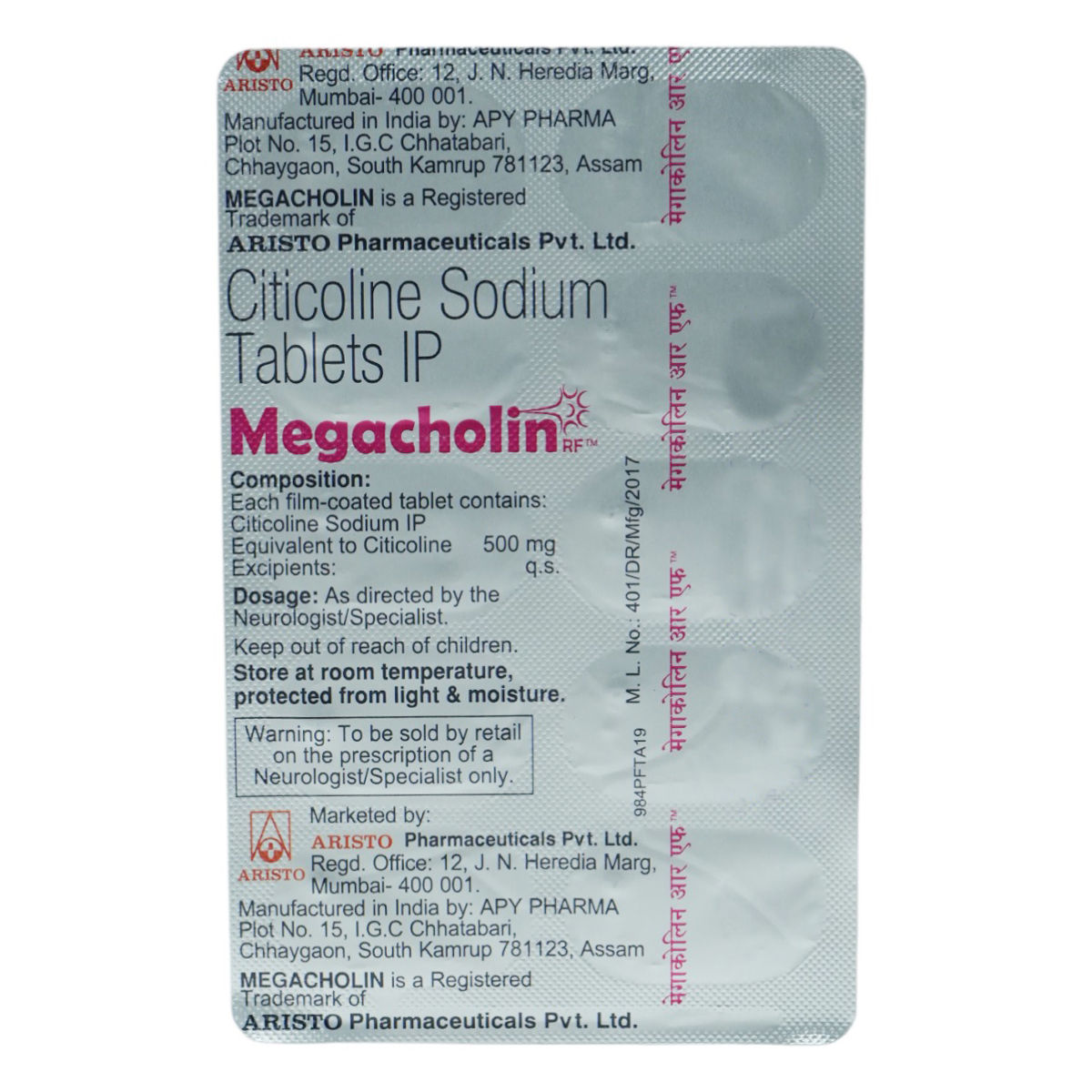Ceham Sugar Free Syrup 60 ml
₹756*
MRP ₹840
10% off
₹714*
MRP ₹840
15% CB
₹126 cashback(15%)
Free Delivery
With Circle membership
(Inclusive of all Taxes)
This offer price is valid on orders above ₹800. Apply coupon PHARMA10/PHARMA18 (excluding restricted items)
Know Your Delivery Time
Provide Delivery Location



Available Offers
 Prescription drug
Prescription drugWhats That
 21 people bought
21 people bought 
Secure Payment

India's Most Trusted Pharmacy

Genuine Products
Composition :
Manufacturer/Marketer :
Consume Type :
Return Policy :
Expires on or after :
About Ceham Sugar Free Syrup
Ceham Sugar Free Syrup is used to treat stroke, head trauma or injury, Alzheimer’s disease, Parkinson’s disease, and glaucoma. A stroke occurs due to insufficient blood supply to the brain. Alzheimer’s disease is a progressive age-related memory loss. Parkinson’s disease is a progressive brain disorder that affects movement. Glaucoma is an eye problem that occurs due to damage to the optic nerve, responsible for vision.
Ceham Sugar Free Syrup contains 'Citicoline’, a psychostimulant or nootropic used to nourish and minimize damage to the nerve cells in various conditions associated with the brain. It increases the activity of the central nervous system (brain and spinal cord). It regenerates nerve cells by promoting the synthesis of phospholipids (forms neuronal membrane) in the brain. It improves learning, memory, judging, and thinking processes. It can improve recovery in patients with disturbance in consciousness in patients with head injury or any other problems associated with the brain and who underwent surgery.
You may experience some side effects, such as gastrointestinal disturbances, including nausea, constipation or diarrhoea, abdominal pain, headache, blurred vision, insomnia (trouble sleeping), hypotension (decrease in blood pressure), increased or decreased heart rate, and restlessness. Most of these side effects do not require medical attention. However, if the symptoms persist or get worsen, consult a doctor immediately.
Before taking the Ceham Sugar Free Syrup, let your doctor know about all your allergic or hypersensitivity reactions to medicines or food. Inform your doctor if you are suffering from kidney, liver, or heart disease. If you are pregnant or breastfeeding, please tell your doctor so that your doctor will weigh the benefits and any potential risks before prescribing it to you. Keep your doctor informed about your health condition and all the medicines you are taking before taking Ceham Sugar Free Syrup to rule out any side effects.
Uses of Ceham Sugar Free Syrup
Directions for Use
Medicinal Benefits
Ceham Sugar Free Syrup contains 'Citicoline,' which belongs to the class of ‘psychostimulants.’ It is used to promote brain health. It is used to treat stroke, head injury, Alzheimer’s disease, Parkinson’s disease, and glaucoma. It protects the brain from neurotoxicity (damage to the brain). It acts as a precursor for phospholipids (present in the outer membrane of the nerve cell) and also stimulates phospholipid synthesis in the brain. It also stimulates blood flow and oxygen consumption in the brain. This promotes brain activity and improves cognition, memory, and thinking capabilities in patients with progressive brain disorders. It accelerates the recovery rate in patients with neurological diseases (diseases affecting the brain).
How Ceham Sugar Free Syrup Works
Storage
Side Effects of Ceham Sugar Free Syrup
- Nausea
- Constipation
- Diarrhea
- Headache
- Insomnia (trouble sleeping)
- Hypotension (decrease in blood pressure)
- Blurred vision
- Increase or decrease in heart rate
- Restlessness
What if I have taken an overdose of Ceham Sugar Free Syrup
Drug Warnings
Before taking the Ceham Sugar Free Syrup, let your doctor know about all your allergic or hypersensitivity reactions to medicines or food. Inform your doctor if you are suffering from kidney, liver, or heart disease. If you are pregnant or breastfeeding, please tell your doctor so that your doctor will weigh the benefits and any potential risks before prescribing it to you. Keep your doctor informed about your health condition and all the medicines you are taking before taking Ceham Sugar Free Syrup to rule out any side effects.
Drug-Drug Interactions
Drug-Drug Interactions
Login/Sign Up
Drug-Food Interactions
Drug-Food Interactions
Login/Sign Up
Diet & Lifestyle Advise
Include more green, leafy vegetables and other non-starchy vegetables (tomatoes, broccoli, cauliflower, etc.) in your diet.
Eat strawberries, blueberries, blackberries, and nuts as they reduce inflammation in the brain.
Use olive oil for cooking purposes. It contains healthy fats that promote brain health.
Eat whole grains such as oats, quinoa, and brown rice that are rich in nutrients.
Opt for fish oil or eat fish (preferably fatty fish like salmon, sardines, trout, and tuna) at least once a week. They are rich in omega-3 fatty acids essential for the brain's normal functioning.
Avoid fried, processed, and packed foods.
Quit alcohol intake and smoking.
Exercise regularly.
Habit Forming
Therapeutic Class
Ceham Sugar Free Syrup Substitute

Strocit 500 Tablet 10's
₹66.51per tabletColihenz Tablet 10's
₹68.40per tabletCitimet Tablet 10's
₹57.15per tabletStropil 500 Tablet 10's
₹60.30per tabletMegacholin RF Tablet 10's
by AYUR
₹43.20per tablet
Product Substitutes
Alcohol
Caution
Ceham Sugar Free Syrup may or may not interact with alcohol. However, alcohol worsens neurological conditions. So, it is better to avoid consuming alcohol.
Pregnancy
Caution
You should not take Ceham Sugar Free Syrup during pregnancy unless prescribed by a doctor. The safety of this medicine for use during pregnancy has not been established.
Breast Feeding
Caution
A breastfeeding mother should not take Ceham Sugar Free Syrup unless prescribed by a doctor.
Driving
Caution
Ceham Sugar Free Syrup may cause blurred vision and a decrease in blood pressure. So, it is recommended to be cautious to drive or operate heavy machinery after taking Ceham Sugar Free Syrup.
Liver
Caution
Limited information was available for the use of Ceham Sugar Free Syrup in patients suffering from liver impairment. Please consult your doctor if you have any concerns regarding using Ceham Sugar Free Syrup in patients with liver impairment. Your doctor will prescribe only if the benefits outweigh the risks.
Kidney
Caution
Limited information was available for the use of Ceham Sugar Free Syrup in patients suffering from kidney impairment. Please consult your doctor if you have any concerns regarding using Ceham Sugar Free Syrup in patients with kidney impairment. Your doctor will prescribe only if the benefits outweigh the risks.
Children
Caution
Ceham Sugar Free Syrup is not used in children below 12 years of age unless prescribed by a doctor.
FAQs
Country of origin
Manufacturer/Marketer address
Disclaimer
Author Details
We provide you with authentic, trustworthy and relevant information






















